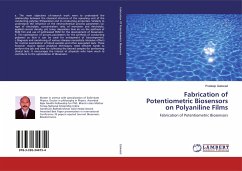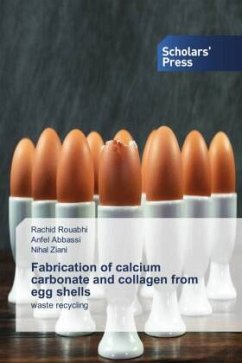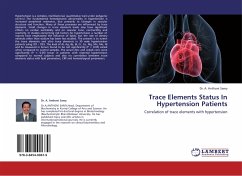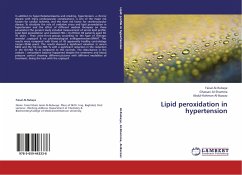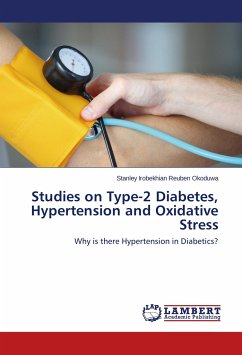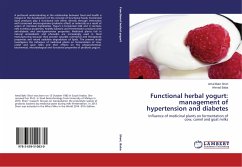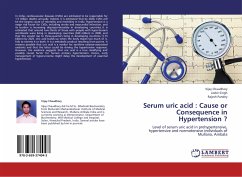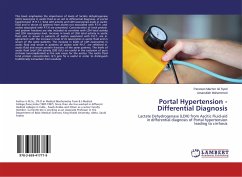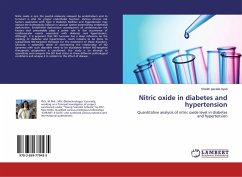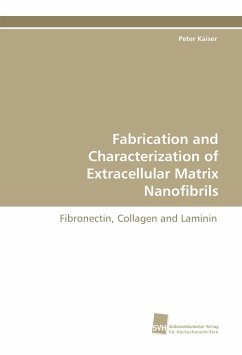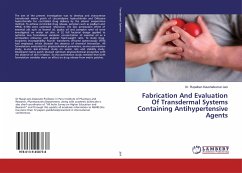
Fabrication And Evaluation Of Transdermal Systems Containing Antihypertensive Agents
Versandkostenfrei!
Versandfertig in 6-10 Tagen
47,99 €
inkl. MwSt.

PAYBACK Punkte
24 °P sammeln!
The aim of the present investigation was to develop and characterize transdermal matrix patch of Lercanidipine hydrochloride and Diltiazem hydrochloride for controlled drug delivery by the solvent evaporation method. To achieve controlled drug release, polymers such as psyllium and HPMC K15M were optimized. Moreover, the skin permeation effect of essential oils such as linseed oil, jojoba oil and pumpkin seed oil were investigated on wistar rat skin. A 32 full factorial design applied to optimize two formulation variables: concentration of essential oil as a permeation enhancer and polymer fix...
The aim of the present investigation was to develop and characterize transdermal matrix patch of Lercanidipine hydrochloride and Diltiazem hydrochloride for controlled drug delivery by the solvent evaporation method. To achieve controlled drug release, polymers such as psyllium and HPMC K15M were optimized. Moreover, the skin permeation effect of essential oils such as linseed oil, jojoba oil and pumpkin seed oil were investigated on wistar rat skin. A 32 full factorial design applied to optimize two formulation variables: concentration of essential oil as a permeation enhancer and polymer fixed-weight ratio. To study drug-excipients incompatibility Fourier transforms infrared spectroscopy (FTIR) had employed, which showed the absence of chemical interaction. All formulations evaluated for physicochemical parameters, ex-vivo permeation study, in-vivo skin-irritation study on wistar rats and stability study. Developed matrix patch showed optimum physicochemical properties with theabsence of skin irritation. Ex-vivo permeation study revealed that both formulation variables show an effect on drug release from matrix patches.



